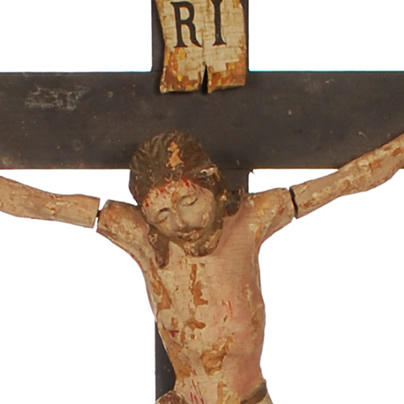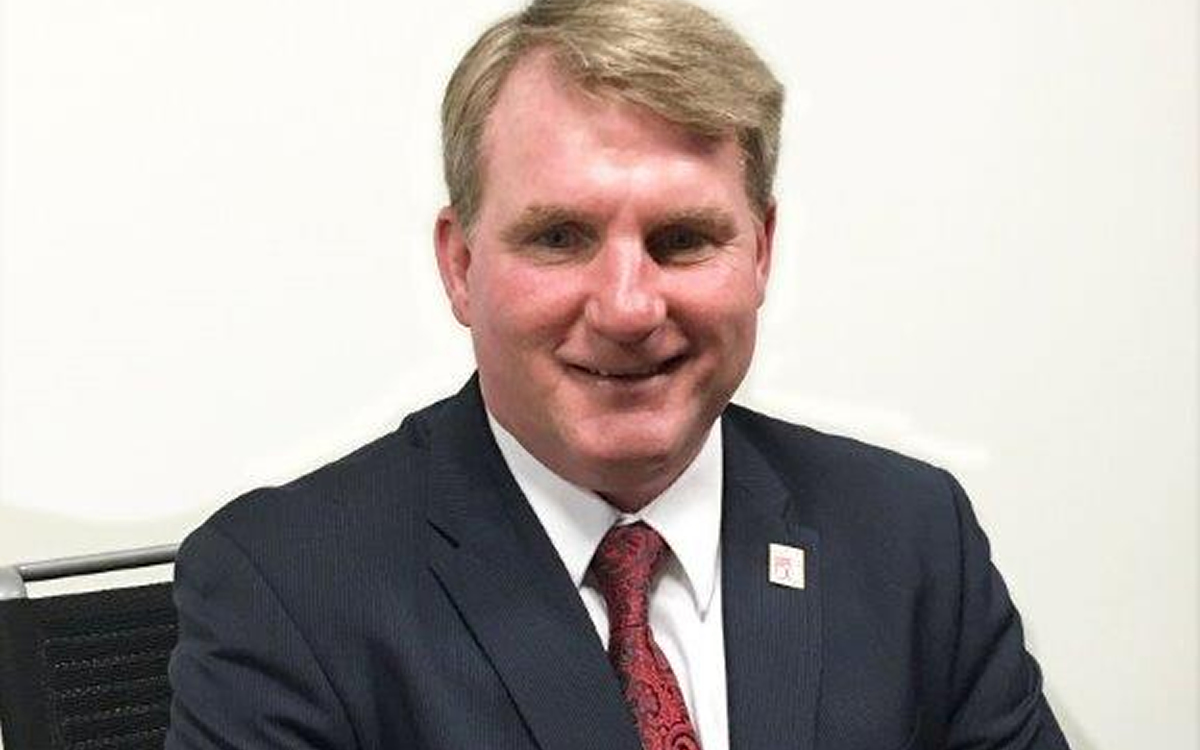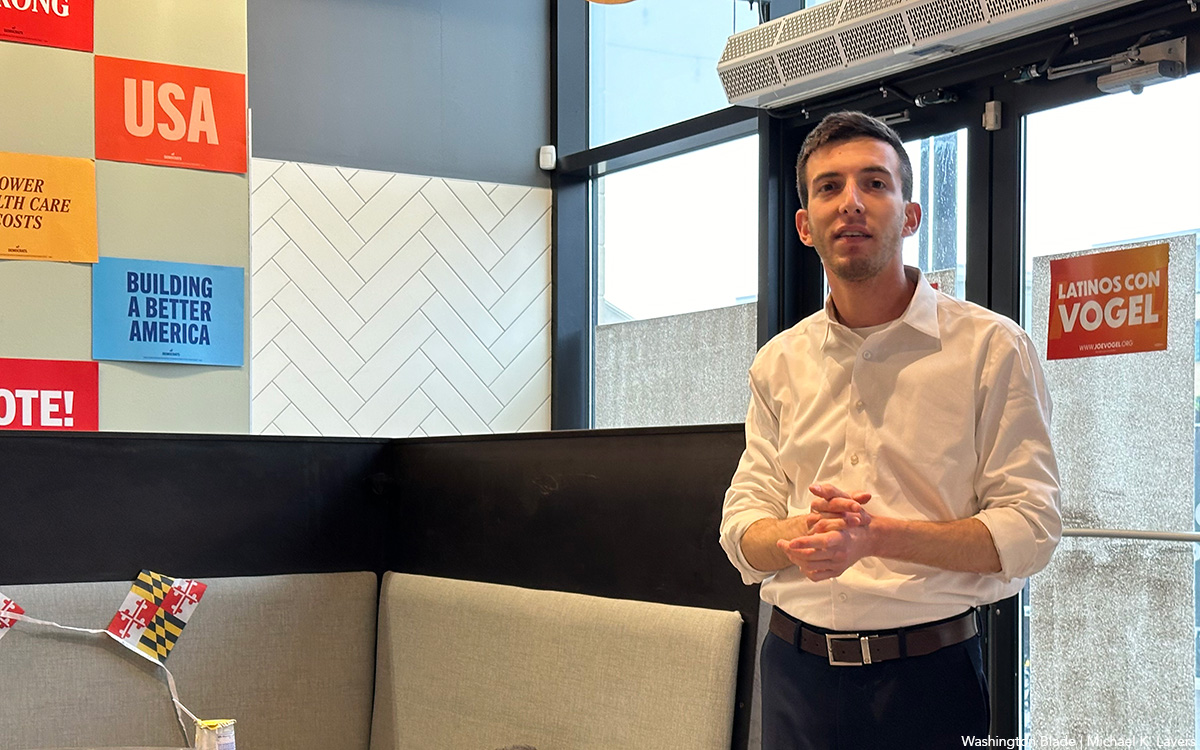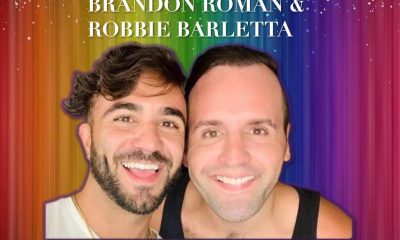Local
Gay man says priest refused to give last rites
Incident at Washington Hospital Center angers LGBT Catholic group

A Roman Catholic priest working as a chaplain at D.C.’s Washington Hospital Center refused to give last rites and communion to a heart attack patient earlier this month after the patient told him he’s gay and believes Pope Francis is sympathetic to gay people, the patient told the Blade.
D.C. resident Ronald Plishka, 63, a retired travel agent and lifelong Catholic, said he asked a nurse to arrange for a priest to see him on Feb. 7, one day after he was admitted by ambulance to the hospital emergency room for a heart attack. He said that at the time he wasn’t sure he would survive.
A short time later, Plishka said, Father Brian Coelho, a priest assigned to the hospital’s Department of Spiritual Care, arrived at his bedside. He said Coelho offered to take his confession before proceeding with communion and last rites, which the church now calls the sacrament of anointing of the sick.
“We started talking and I told him I was so happy with this new Pope because of his comments about the gays and his accepting the gays,” Plishka said. “And I mentioned that I was gay. I said it and then I asked him does that bother you? And he said, ‘Oh, no, that does not bother me,’” said Plishka.
“But then he would not proceed with administering the last rites or communion. He couldn’t do it.”
According to Plishka, Coelho, who brought a supply of holy water to his hospital room, never said in so many words that he was refusing to administer communion and last rites.
Asked what Coelho told him, Plishka said, “Well, I mean he stopped. He would not do it. By him not doing it I assumed he would not do it because why was he getting ready to do it and all of a sudden when I say I’m gay he stops?”
Plishka said Coelho gave no reason for not giving him the sacraments he requested but offered instead to pray with him.
“He said what he wanted to do,” said Plishka. “He wanted to pray. That’s what he wanted to do. He said well I could pray with you. And I just told him to get the fuck out of here — excuse me. But that’s what I told him.”
The patient with whom he shared the hospital room overheard some of what was said and asked him, “What in the name of God happened?,” Plishka said.
“And then the doctors came in and told me to calm down or I’m going to have another heart attack,” he said.
Coelho, whose photo appears in the Washington Hospital Center’s online staff directory of hospital chaplains, did not return a call from the Blade seeking comment on his interaction with Plishka.
So Young Pak, Washington Hospital Center’s director of media relations, said the Archdiocese of Washington assigned Coelho to serve as a Catholic chaplain at the hospital. She said the hospital did not hire Coelho.
Pak released a statement to the Blade saying the hospital cannot comment on the specifics of the interaction between Coelho and Plishka “because we were not a party to it.”
But her statement says the hospital is taking “our patient’s concerns very seriously.” She said the Human Rights Campaign Foundation recognized Washington Hospital Center last year as a “Leader in LGBT Healthcare Equality.”
“We want to hold true to this important commitment to the LGBT community and to all of our patients,” she said. “It is our expectation that all who offer spiritual care to patients in our hospital adhere to our values and extend excellent care, both physical and spiritual, to all patients regardless of their faith traditions,” she said.
Pak added, “Our Department of Spiritual Care will reinforce our expectations with this priest and his superiors.”
Plishka said the treatment he received from the hospital itself was “excellent” and praised the hospital and its doctors for saving his life.
Chieko Noguchi, a spokesperson for the Archdiocese of Washington, which has jurisdiction over D.C. area priests working as hospital chaplains, said her office would have no comment at this time.
A June 2010 biography of Coelho published on the Archdiocese website says Coelho was appointed at that time as parochial vicar at St. Mary Parish in Landover Hills, Md. It says he was “born in India and attended seminary there prior to entering the Archdiocese of Washington’s Redemptoris Mater Seminary.”
The biography says he was ordained on May 26, 2007 and served as a parochial victor at St. Mary of the Mills in Laurel, Md., and at St. Elizabeth Parish in Rockville, Md., in previous assignment.
Pak said Coelho began his tenure as chaplain at Washington Hospital Center in October 2013.
Officials with the LGBT Catholic organizations Dignity U.S.A. and Dignity Washington expressed disbelief that a priest would refuse to offer last rites and communion to a patient in need.
“This is just abhorrent and not Christ-like at all,” said Dignity Washington President Daniel Barutta. “I can’t imagine where that priest is coming from.”
Henry Huot, a retired Catholic priest who serves as chair of Dignity Washington’s Pastoral Ministry Committee, said longstanding Catholic practice calls for priests to provide the sacraments to people in situations similar to Plishka.
“Any baptized Christian ought not to be denied the sacraments at his or her request,” Huot said. “And that is a cardinal rule of pastoral care. So I don’t know what was going through the mind of this hospital chaplain to deny this man the sacraments,” he said. “It violates this cardinal rule.”
Huot and other Dignity officials, including a priest who asked not to be identified, said no church rule or policy says sacraments should be withheld to people because of their sexual orientation.
“The fact that conditions existed for a priest to make this call is upsetting,” said Dignity USA President Marianne Duddy-Burke. “There should be very clear standards. You minister to the person in need without judgment and without conditions,” she said. “It is not the role of the priest to cause the person in distress additional hardship.”
Duddy-Burke said it’s the responsibility of the Archdiocese to set pastoral care standards for priests under its jurisdiction.
“And I would hope that if this case is brought to the attention of Archdiocesan officials, as it should be, that they would respond appropriately and discipline this priest and make it known to every priest and every person that’s providing pastoral care in the Archdiocese that people should be treated as children of God first.”
Barutta said the group’s pastoral committee headed by Huot has a list of priests on call to provide pastoral care for people in situations similar to Plishka.
“Can you imagine Pope Francis being at that hospital?” Barutta said. “He would be siting by the bedside and be with this guy for more than an hour. I’m almost positive of that.”
Plishka said he is thankful that, unlike his encounter with the priest, his medical treatment at the Washington Hospital Center worked out well. In what he called state of the art cardiac procedures, he said doctors implanted stents through a catheter to reopen clogged arteries in his heart. Much to his surprise, the hospital discharged him just three days after he was admitted, with instructions that he adhere to several weeks of rest and outpatient treatment.
Once at home, Plishka said he called the hospital chaplain’s office to lodge a complaint against Fr. Coelho. He said he also called the Basilica of the National Shrine of the Immaculate Conception next to Catholic University, where he has attended Mass nearly every Sunday for years.
“They have a priest on call,” he said. “So he called me back and said he agreed with what the priest at the hospital did. He said unless you’re willing to change and basically become somebody you’re not, then this priest had every right to do that, to refuse you communion and to refuse you the last rites of the church,” Plishka said.
He said he doesn’t recall the priest’s name but recalls the priest saying he was the one assigned to take calls from members of the community on that day — Feb. 8.
Ironically, Plishka said, a minister from another denomination came to his hospital room and gave him the spiritual support he didn’t receive from Fr. Coelho. In response to a call to the hospital by one of his friends, who Plishka had told of his encounter with Coelho, the hospital sent a Methodist minister to see him in his hospital room shortly after Coelho’s visit.
“He prayed with me and gave me communion and all of that,” said Plishka. “But it’s not the same. It’s not my religion, you know? I’ve been a Catholic all my life and for them to refuse me a sacrament and to refuse me communion? It destroyed me.”
Now, Plishka said, he decided to speak out about his experience with the hope that it might make a difference.
“I think there comes a time when as a gay man you have to take a stand, you know? It’s just intolerable to be treated like you’re nothing. And I could have died. And all I did was ask for the rites of the church that are due to me. But because I’m gay I’m denied that.”
District of Columbia
Taste of Point returns at critical time for queer students
BIPOC scholar to speak at Room & Board event on May 2

The Point Foundation will kick off May with its annual Taste of Point DC event. The event will be hosted at Room & Board on 14th Street and feature a silent auction, food tastings, a speech from a scholar, and more.
Point’s chief of staff, Kevin Wright, said that at Taste of Point, the scholars are the star of the show.
“People never come to an event to hear Point staff speak, they come to hear from the people most impacted by the program,” he said. “At its core Taste of Point is designed to center and highlight our scholars’ voices and experiences.”
This year, a Point BIPOC Scholar, Katherine Guerrero Rivera will speak at the event.
“It is a great opportunity to highlight the scholars out there on the front lines making impacts in almost every sector and job field,” Wright said.
Wright pointed out that this year especially is a pivotal time for LGBTQ students.
“In 2023, there were 20 states that passed anti-LGBTQ legislation,” he said. “By this point in [2024] we already have more.”
Wright said the impacts of those legislative attacks are far reaching and that Point is continuously monitoring the impact they have on students on the ground.
Last month, The Washington Post reported that states with anti-LGBTQ laws in place saw school hate crimes quadruple. This report came a month after a non-binary student, Nex Bennedict, died after being attacked at school.
“So, we see this as a critical moment to really step up and help students who are facing these challenges on their campus,” Wright said. “Our mission is to continue to empower our scholars to achieve their full academic and leadership potential.”
This year Point awarded nearly 600 LGBTQ students with scholarships. These include the flagship scholarship, community college scholarship and the BIPOC scholarship. When the foundation started in 2002, there were only eight scholarships awarded.
Dr. Harjant Gill is one of those scholars who said the scholarship was pivotal for him. Gill said he spent his undergraduate years creating films and doing activism for the LGBTQ community.
As a result, his academic record wasn’t stellar and although he was admitted into American University’s graduate program he had no clue how he would fund it.
Upon arrival to American he was told to apply for a Point scholarship and the rest was history.
“It ended up being the one thing that kept me going otherwise I would have dropped out,” he said. “Point was incredibly instrumental in my journey to becoming an academic and a professor.”
More than a decade later, Gill serves on the host committee for Taste of Point and is a mentor to young Point scholars. He said that he donates money yearly to Point and that when he is asked what he wants for a gift he will often tell his friends to donate too.
To attend the event on Wednesday, May 2, purchase tickets at the Point website. If you can’t attend this year’s Taste of Point DC event but would like to get involved, you can also donate online.
District of Columbia
Three of five LGBTQ candidates win race for DNC delegate from D.C.
32 candidates competed for 13 elected seats in party caucus

Three out of five known LGBTQ candidates running for election as delegates from D.C. to the Democratic National Convention won their races at an April 20 Democratic Party caucus election held at D.C.’s Walter Washington Convention Center.
Ward 2 gay Democratic activist John Fanning finished in first place with 140 votes and Ward 8 gay Democratic activist David Meadows finished in second place with 127 votes in a race in which six male candidates committed to supporting President Biden were competing for three male seats in a section of the city designated as Congressional District 1, which included registered Democratic voters in Wards 1, 2, 6, and 8.
Ward 7 gay Democratic activist Jimmie Williams won his race, finishing in third place with 200 votes in a race in which eight male candidates committed to President Biden competed for four male seats in the Congressional District 2 section of the city that included Wards 3, 4, 5, and 7.
Gay Democratic activist Felipe Afanador lost his race, finishing in sixth place with 47 votes in the Congressional District 2 election for male candidates backing Biden. It couldn’t immediately be determined which of the four wards in District 2 he is from.
The Washington Blade didn’t learn about Afanador’s status as an LGBTQ candidate until the Capital Stonewall Democrats announced it one day before the April 20 party election in an email statement.
In the Congressional District 2 race among female candidates, in which eight candidates competed for three female seats, transgender rights advocate and Ward 3 Democratic Party activist Monika Nemeth lost her race, finishing in sixth place with 49 votes.
The five LGBTQ candidates were among 32 candidates competing for just 13 elected delegate positions in D.C. D.C. will have a total of 51 delegates to the Democratic Convention, but the other 38 include elected officials and party leaders who are considered “automatic” or appointed delegates. The Democratic Convention will be held in Chicago Aug. 19-23.
Observers familiar with the April 20 party caucus election said Fanning, Meadows, and Williams had participated in local D.C. Democratic Party events and activities for a longer period than Nemeth and Afanador and appear to have been better known among Democratic voters in their respective wards as well as other wards. Those factors contributed to their receiving significantly more votes than most other candidates, observers have said.
In his candidacy statement posted on the D.C. Democratic Party website, Afanador said he worked on the 2020 Biden presidential election campaign in Pennsylvania. His LinkedIn page says in 2022 he began work in Washington for the Biden administration as an official in the U.S. Department of Agriculture.
Nemeth is a past president of D.C.’s Capital Stonewall Democrats, the city’s largest LGBTQ local political group, and has been an active member of the D.C. Democratic State Committee, the local party governing body. She served as a Biden delegate at the 2020 Democratic National Convention.
“It is important for our D.C. delegation to have strong LGBTQ representation,” Capital Stonewall Democrats said in its April 19 statement. “There are five LGBQ candidates running to be delegate, and Capital Stonewall Democrats asks that our members support each one,” the statement says.
“Unfortunately, they fell short, but they and all queer Democrats are welcome to attend and participate in convention events and activities sponsored by the national and local party,” Meadows told the Blade in referring to Nemeth and Afanador. “Our shared goal is to unite behind the Biden-Harris ticket to protect our LGBTQ rights from being dismantled by Donald Trump and the GOP,” Meadows said.
“Running for District Delegate is one of the most grassroots efforts,” Fanning told the Blade. “It’s very beneficial to align yourself on a slate with community leaders that have either previously run for District Delegate or have developed a constituency in their community from other civic engagements,” he said, referring to possible reasons for his, Meadows, and Williams’s election victory.
Aside from the D.C. elected LGBTQ delegates, two prominent D.C. LGBTQ Democratic leaders will be appointed as delegates to the 2024 Democratic National Convention in their role as members of the Democratic National Committee from D.C. They are Claire Lucas, a highly acclaimed Democratic Party and LGBTQ rights advocate and party fundraiser; and Earl Fowlkes, one of the lead organizers of D.C.’s annual Black LGBTQ Pride celebration and former president of the Capital Stonewall Democrats. Both are committed to supporting President Biden as the Democratic nominee for re-election.

GAITHERSBURG, Md. — Maryland state Del. Joe Vogel (D-Montgomery County) on Friday held a “Big Gay Canvass Kickoff” event at his congressional campaign’s headquarters.
LGBTQ+ Victory Fund Vice President of Outreach and Engagement Marty Rouse and John Klenert, a member of the DC Vote and Victory Fund Campaign board of directors, are among those who participated alongside members of Equality PAC. Vogel spoke before Rouse, Klenert and others canvassed for votes in the area.
“Joe brings a fresh new perspective to politics,” said Gabri Kurtzer-Ellenbogen, deputy field director for Vogel’s campaign.
Vogel, 27, is among the Democrats running for Congressman David Trone’s seat.
Trone last May announced his bid to succeed retiring U.S. Sen. Ben Cardin (D-Md.) in the U.S. Senate.
The Democratic primary is on May 14. Vogel would be the first Latino, the first gay man and first Gen Zer elected to Congress from Maryland if he were to win in November.
“We need a new generation of leadership with new perspectives, new ideas, and the courage to actually deliver for our communities if we want things to get better in this country,” Vogel told the Washington Blade last month during an interview in D.C.
-

 South America4 days ago
South America4 days agoDaniel Zamudio murderer’s parole request denied
-

 Maryland5 days ago
Maryland5 days agoMontgomery County police chief discusses arrest of trans student charged with planned school shooting
-

 Commentary5 days ago
Commentary5 days agoWorld ‘isn’t much different today’
-

 State Department20 hours ago
State Department20 hours agoState Department releases annual human rights report









